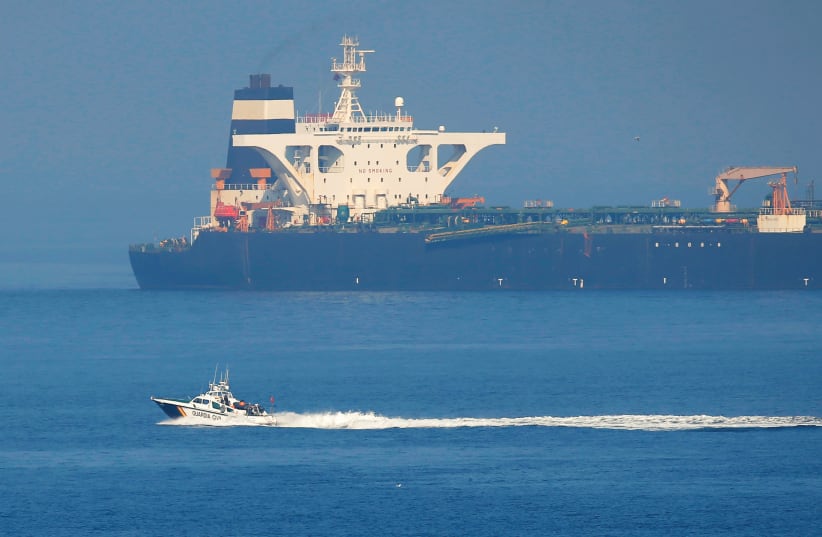The ship suspected of causing the oil spill that polluted Israel’s shores was likely delivering Iranian oil illegally through deceptive shipping practices, according to Ami Daniel, CEO of maritime risk management firm Windward.
Tel Aviv-based Windward, which provides governments and companies with risk analyses on maritime trade regarding security, safety, sanctions, environmental regulations and compliance, was one of the companies that Israel consulted to identify the source of the spill.
Mossad officials and the IDF have distanced themselves from claims made on Wednesday by Environmental Protection Minister Gila Gamliel, that deliberate terrorism was the cause of the spill that created one of the worst ecological disasters in Israel’s history.
Maritime security has become more important in recent years, and Windward uses artificial intelligence to process information from satellite images, radio frequencies, shipping and port data, weather information, and more to provide customers with insights and risk assessments.
“In May 2020, the United States coined the term ‘deceptive shipping practices’ to describe how Iran and other bad actors circumvent trade sanctions, and issued a series of new maritime compliance regulations,” Daniel explained. “The UK also issued a similar advisory about a month afterward. These regulations moved the onus of trade sanctions compliance from the government to the people in the trade life cycle – commercial entities, banks, commodity traders, insurance companies, energy companies, shipping companies and others. That means that the businesses are now required to review every deal to make sure it steers clear of deceptive shipping practices.
“Among the problematic practices listed in the directives are: intentionally turning off transmission; transferring cargo via ship-to-ship transfers in the middle of the ocean; irregular patterns or anomalous shipping journeys; complex, or opaque company ownership structures; and falsification of cargo, or hiding the origin of cargo.”
With that background, Daniel explained the circumstances of the Emerald, the ship suspected of causing the spill.
“What we have according to our data analytics is the following: you have an older vessel, 19 years old, bought in December by a one-ship company in the Marshall Islands called Majuro. It was probably bought for cheap – in order to do this journey – a month before the trip. That’s a dubious ownership structure, [and is] against the rules we mentioned.
“The ship went to the Persian Gulf and disappeared in the beginning of January off the coast of Iran, in what was probably ship-to-ship loading of Iranian oil. That’s also forbidden. Then it headed to the Red Sea and the Suez Canal; and then it deliberately turned off radio transmissions off the coast of Israel. Again, against the rules. This is the first time in eight years this vessel had come to the eastern Mediterranean, making it a suspicious anomalous shipping pattern. And then the ship did another ship-to-ship transfer with another dark vessel off the coast northeast of Cyprus, probably to take the crude oil into the Banias in Syria.
“We are talking about a ship with numerous deceptive practices, very closely tied to unsanctioned trade between Syria and Iran. According to our data, this is the ship that most likely caused the oil spill, based on its location and the spill, and that according to lab results, it was crude oil not bunker fuel that polluted the waters.”
Does that make this a terrorist attack, as MK Gamliel claimed?
“Our job is not to speculate as to the ship’s intent,” Daniel said. “All I can say is that this vessel acted very much in line with the deceptive shipping practices about which we warn our customers.”

Daniel said the event was similar to another oil spill in January off the coast of Indonesia, caused by another suspicious ship using a ship-to-ship transfer to deliver Iranian oil to another country in the region.
“The ships doing these operations are not exactly first-class vessels,” he said. “They are poorly maintained and work in the dark to escape those looking for it and trying to apprehend it. And that leads to environmental disasters.”
